-
We SinnersA Novel
Her plan had been to clean in the middle of the night, so her mother would wake to an empty kitchen sink, but as she stood in the foyer, the bathroom fan beating loudly and uselessly, the mess before her made her want to cry; being in a family of eleven made her want to cry, the way someone had soaked up the dog’s pee but not thrown away the paper towel, the way responsibility divided by eleven meant no one was really responsible.
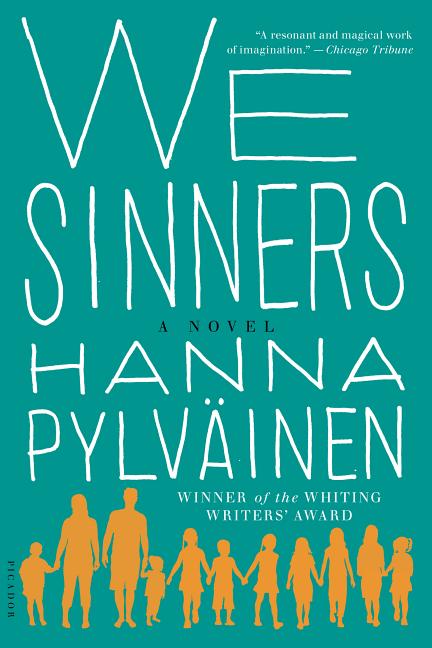 We Sinners: A Novel
We Sinners: A Novel -
We SinnersA Novel
She was angry that now she had to be the mother with the gay son, the minister’s wife with the gay son—always she would carry the burden of Simon with her, the shame of having birthed something that could not be happy in this world, like the shame of mothers with retarded children, the burden of having to love something society feared, something repulsive to the world.
 We Sinners: A Novel
We Sinners: A Novel -
We SinnersA Novel
Still the beeping carried on, the room wearing thin now, and she could make out no particular person. The image came to her of her abdomen as prey, ants to jelly on the counter, jelly on the knife, and she thought about Abraham and Isaac, about Abraham tying Isaac to the table, and she wondered how long it took him, and did he tie Isaac carefully. She thought she would try to get up, but she couldn’t, she was bound, or her muscles were, and she said, or thought she said, I don’t want to die, as if to ask God Himself to hold the scalpel.
 We Sinners: A Novel
We Sinners: A Novel
-
A Constellation of Vital PhenomenaA Novel
At the end of the hall, through the partially opened waiting-room door, she saw the hemline of a black dress, the gray of once-white tennis shoes, and a green hijab that, rather than covering the long black hair, held the broken arm of a young woman who was made of bird bones and calcium deficiency, who believed this to be her twenty-second broken bone, when in fact it was merely her twenty-first.
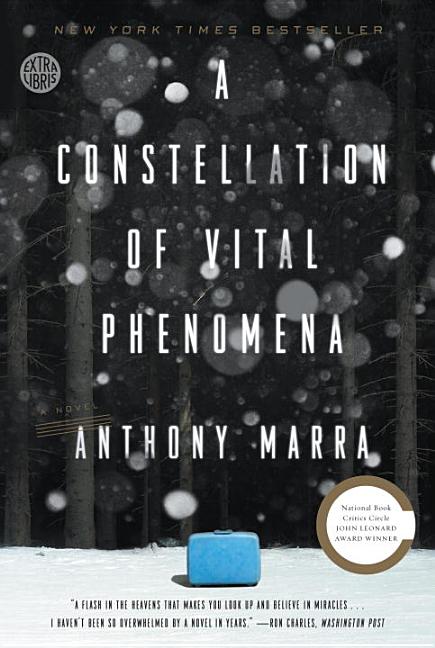 A Constellation of Vital Phenomena: A Novel
A Constellation of Vital Phenomena: A Novel -
A Constellation of Vital PhenomenaA Novel
When a ten-second spray of gunfire flooded the sky, Havaa couldn’t have imagined it was directed at eight villagers deemed too dangerous to be transported to the Landfill. Lying on the mossy topsoil for hours, she thought of her father’s defeat the previous afternoon. She knew that Russian soldiers could destroy a village, but she hadn’t known her father could lose a chess match.
 A Constellation of Vital Phenomena: A Novel
A Constellation of Vital Phenomena: A Novel -
A Constellation of Vital PhenomenaA Novel
There is the night, the last night, the next night. The belt around your ankle, the two taps of the syringe, the blood into the barrel, the plunger pushing in. There is the woman named Anzhela but called Natasha. The woman named Nadya but called Natasha. The woman named Natasha, called Natasha.
 A Constellation of Vital Phenomena: A Novel
A Constellation of Vital Phenomena: A Novel
Selected Works
read more >-
VoltStoriesFrom"Smoke"
He watched the sky and thought of all the fires the world had ever seen, fires from wars, fires from bombs. So much smoke. Where has it all gone? New smoke curled beneath wisps of old, drifting ever higher, higher. Where does it all go? He inhaled deeply and his insides burned, and Vernon knew all that smoke was now just the air we breathe.
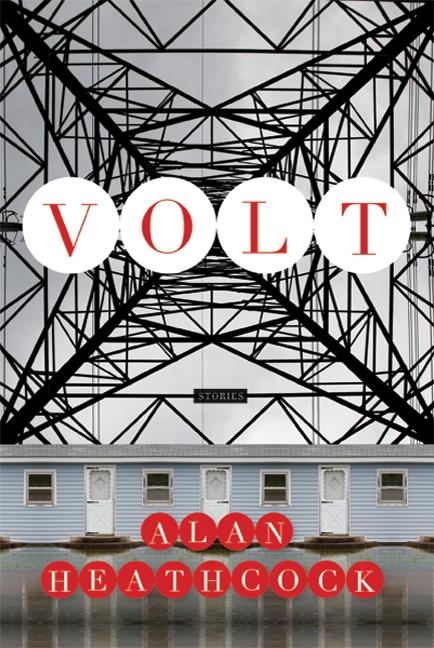 Volt: Stories
Volt: Stories -
VoltStoriesFrom"Smoke"
“I want you to know me as I am, Vernon,” his father said. “I don’t want you to see me as good no more. A man what kills someone ain’t no good.”
 Volt: Stories
Volt: Stories -
VoltStoriesFrom"Volt"
Sparks hissed across Helen’s vision, blood in her mouth. She tried to take her feet, couldn’t catch her breath. Gasping, she bear-crawled toward the cruiser. The muddy feet of children blocked her way. She reached to push them aside, then, groaning, her lungs bucking, pulled herself up the cruiser.
 Volt: Stories
Volt: Stories
Selected Works
read more >-
We Are Taking Only What We NeedStoriesFrom"We Are Taking Only What We Need "
Daddy shook the box, kicked it, mumbled under his breath something that sounded like it had teeth. He came from around the house with a shovel and dragged it behind him, along with the box, to the woods. He would bury my dog, I thought.
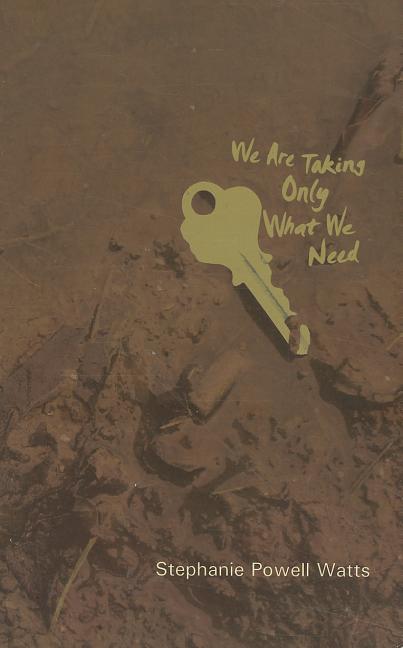 We Are Taking Only What We Need: Stories
We Are Taking Only What We Need: Stories -
We Are Taking Only What We NeedStoriesFrom"All the Sad Etc."
The sharp vision of Douglas’ face screwed into concentration on one then the other bouncing Ping-Pong ball, his arm swinging at what he must have believed was lightning speed, his face a mask of indecipherable, heavily medicated emotion. How hilarious that would be to somebody who didn’t give a damn about him.
 We Are Taking Only What We Need: Stories
We Are Taking Only What We Need: Stories -
We Are Taking Only What We NeedStoriesFrom"Highway 18"
Just beyond the parking lot Highway 18 looked like a runway, a straight shot, launching me anywhere, or so I thought, until my eyes settled on the across-the-street hamburger joint and throngs of my classmates in bunches spilling out of cars like adolescent clowns, making me forget that I was in the middle of my life, in the eye of it, and forcing me to see myself from the outside. I didn’t like the view. Besides, I was a Jehovah’s Witness.
 We Are Taking Only What We Need: Stories
We Are Taking Only What We Need: Stories
-
All the LivingA Novel
He grimaced out at the fields and she saw the deep elevens etched between his eyes, eyes that were the color of the sky and just as distant. He looked to her like a thing seized, as if all his old self had been suckered up from his body proper and forced into the small, staring space of his eyes. She did not like those new blinkless eyes of his and she did not like the way his words all collapsed in his new way of talking. As if his tongue could not bear the weight of words any longer.
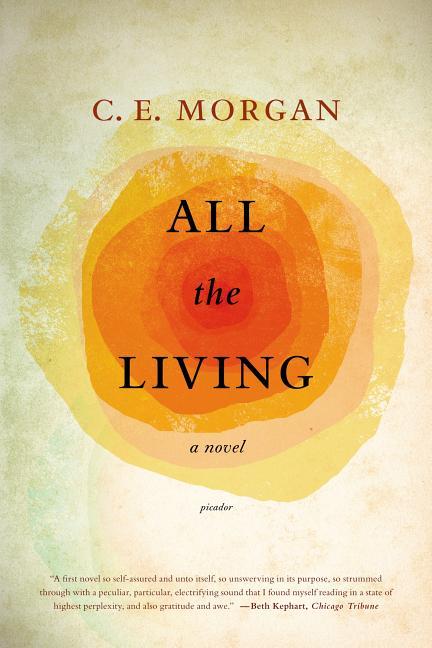 All the Living: A Novel
All the Living: A Novel -
All the LivingA Novel
She hesitated, her hands hovering above the keys. Then she played. And she played, not with the smoothness that she’d possessed two months ago—the last time she’s played from any of the scores—but with a surging and unsteady need that had not been there before. As her fingers found their home, clumsy at first but quick to confidence, her body rocked back and forth unaware on the bench like a child finding its comfort. She played and played.
 All the Living: A Novel
All the Living: A Novel -
All the LivingA Novel
She went upstairs and sat on the bed in her clothes, but she did not lie down. She studied the dark room about her. Her mind strove for a place to rest, but could not settle. The lonesomest thing she knew, her childhood, rose before her like a shade, but she shooed it way with a blink of her dark-accustomed eyes.
 All the Living: A Novel
All the Living: A Novel
-
A Partial History of Lost CausesA Novel
I told him about the nucleotides, the genetic test, the prognosis. I told him that atrophying of basal ganglia starts years before symptoms present, and that right now—in this car, in this moment—parts of my brain were dying, parts that I didn’t know I needed, but parts that I would never, never be able to get back. I told him that there wasn’t an emotion or an impulse or a stumble that I could completely trust; I told him that one day—if I let it—everything I did and said and thought would be nothing more than the entropic implosion of a condemned building or a dying star.
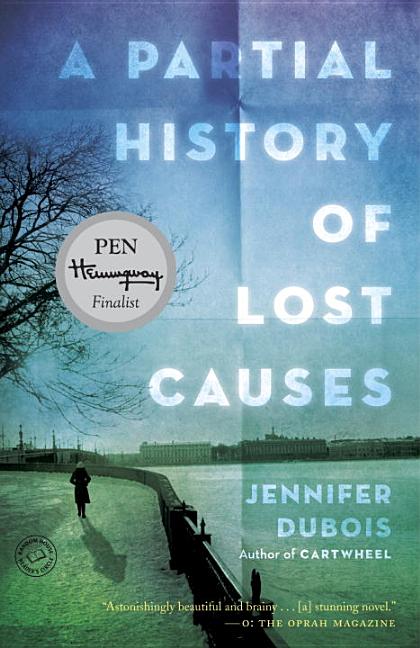 A Partial History of Lost Causes: A Novel
A Partial History of Lost Causes: A Novel -
A Partial History of Lost CausesA Novel
The wedding was in October at a downtown wedding palace, and Aleksandr showed up uninvited just in time to watch Elizabeta walk down the aisle to the national anthem. For the rest of his life, Aleksandr would grimace whenever he heard the song. Other people would notice and remark on how genuinely Alexsandr must have loathed the regime. But it wasn’t the regime that came to mind for him when he heard the song—not Stalin’s twenty million dead or men falling down in the skull-white gulag or Misha’s piss-soaked psychiatric prison. It was Elizabeta walking down the aisle toward a Party official, his face smooth and expectant in the wan, faintly buzzing light.
 A Partial History of Lost Causes: A Novel
A Partial History of Lost Causes: A Novel -
A Partial History of Lost CausesA Novel
A decade passed in slow motion, then faster and faster. When Aleksandr looked back, it returned in snatches, on repeat, hiccupping and distorted sometimes, like a scratched record. There were some good times, of this he was sure—some nice nights with Nina, especially at the beginning, though in memory it became difficult to ascertain how many of the nights were actually nice. Was it one night or two or a half dozen or a dozen? Or was it typical, was it usual, for them to slow-dance in front of that enormous picture window, with St. Petersburg cracked open before them, backlit by the moon, shining with all the grandeur of ancient Rome?
 A Partial History of Lost Causes: A Novel
A Partial History of Lost Causes: A Novel
-
The Man Who Danced With DollsA Novella
The dining room was empty. There were dragons – dragon ashtrays, dragon statues, dragons carved into posts. In a remarkably misguided attempt at décor, there was also a profusion of mirrors. The result was upsetting.
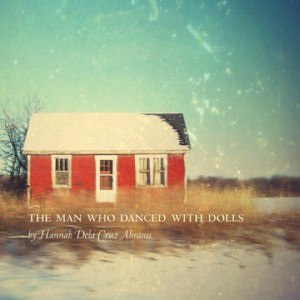 The Man Who Danced With Dolls: A Novella
The Man Who Danced With Dolls: A Novella -
The Man Who Danced With DollsA Novella
He had made dolls. The dolls kept him occupied when he could have been angry and kept him company when he could have been lonely.
 The Man Who Danced With Dolls: A Novella
The Man Who Danced With Dolls: A Novella -
The Man Who Danced With DollsA Novella
My father started going for walks early in the morning. He’d come in without his coat or gloves. The first few times, he would claim to have forgotten them, but eventually, he said simply, ‘I like the cold. It makes me feel awake.’
 The Man Who Danced With Dolls: A Novella
The Man Who Danced With Dolls: A Novella
-
The OrchardistA Novel
There were times when the girls knew where the man was in the orchard, and times they did not. These times they trod slowly and carefully, not that they thought he would harm them—not really—but it had become a kind of game. You might turn the corner into an orchard row and find him there, walking toward you or away, or maybe you saw his legs, his trunk, obscured in leaves.
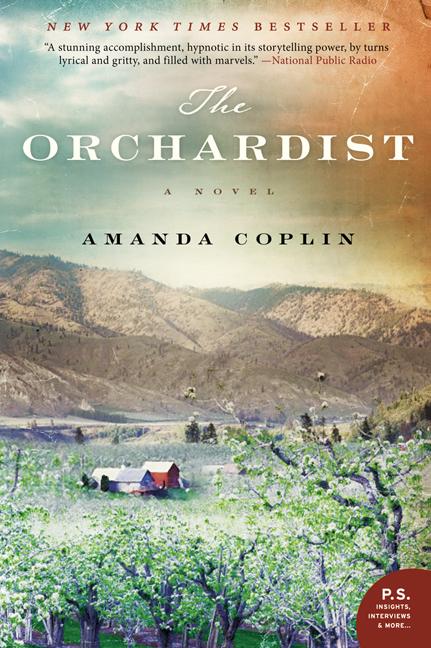 The Orchardist: A Novel
The Orchardist: A Novel -
The OrchardistA Novel
She sat on a blue velvet-cushioned stool. A man she could not see—he was in the ink-black darkness before her—told her to hold very still. He was taking her picture. Did she know what that meant? Don’t move your mouth, he said. Sit still. Try not to blink.
 The Orchardist: A Novel
The Orchardist: A Novel -
The OrchardistA Novel
She stole a horse in a neighboring town—it was easy enough, outside a tavern at night—and discovered the nest morning, having ridden the better part of the night, a venison sandwich in the saddlebags and, sewn into a handkerchief and stuffed into a hidden pocket, bills of money.
 The Orchardist: A Novel
The Orchardist: A Novel